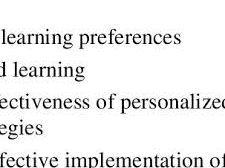In today’s fast-paced world, a good night’s sleep is often considered a luxury rather than a necessity. Many people struggle with sleep issues, from insomnia to sleep apnea, and don’t realize that these problems can significantly impact their overall health and well-being. If you find yourself frequently feeling tired during the day, experiencing restless nights, or struggling to fall Sleep Study it might be time to consider a sleep study.
What is a Sleep Study?
A sleep study, also known as polysomnography, is a comprehensive test used to diagnose sleep disorders. During the study, various physiological parameters are monitored to analyze your sleep patterns and identify any abnormalities. This test is typically conducted in a sleep clinic or a specialized sleep center, where you’ll be observed overnight in a comfortable and controlled environment.
Why Should You Consider a Sleep Study?
- Accurate Diagnosis: Sleep studies provide a thorough analysis of your sleep patterns, helping to identify issues such as sleep apnea, restless legs syndrome, or narcolepsy. This accurate diagnosis is crucial for effective treatment and management of your sleep disorder.
- Improved Sleep Quality: Understanding the root cause of your sleep issues allows for targeted treatments and interventions. With the right diagnosis and treatment plan, you can significantly improve your sleep quality, leading to better overall health and increased energy levels.
- Enhanced Health and Well-being: Poor sleep can contribute to various health problems, including high blood pressure, obesity, diabetes, and heart disease. By addressing sleep disorders through a sleep study, you can reduce your risk of these conditions and improve your overall quality of life.
What to Expect During a Sleep Study
- Pre-Study Preparation: Before the study, you may be asked to avoid caffeine, alcohol, and certain medications that could interfere with your sleep. It’s important to follow any pre-study instructions provided by your sleep specialist.
- Monitoring and Recording: During the study, sensors will be attached to your body to monitor brain waves, heart rate, breathing patterns, and muscle activity. These sensors are non-invasive and designed to ensure your comfort throughout the night.
- Analysis and Results: After the study, a sleep specialist will analyze the data collected and provide a detailed report on your sleep patterns and any identified sleep disorders. Based on the results, they will recommend appropriate treatment options.



